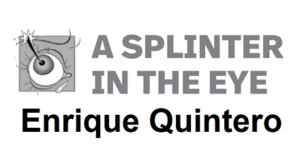by Jacob Mchangama (2020)
 I suppose it will surprise no one to learn that the age–old fight for free speech goes on, and likely will continue as long as there are unpopular ideas. Lawyer, podcaster and founder of a Copenhagen–based human–rights think tank, author Jacob Mchangama is in the thick–skinned camp that still believes “more speech is the best weapon against bad speech.”
I suppose it will surprise no one to learn that the age–old fight for free speech goes on, and likely will continue as long as there are unpopular ideas. Lawyer, podcaster and founder of a Copenhagen–based human–rights think tank, author Jacob Mchangama is in the thick–skinned camp that still believes “more speech is the best weapon against bad speech.”
The author’s background as a biracial Danish citizen and the son of a Sunni Muslim lends legitimacy when he opposes speech restrictions ostensibly aimed at protecting minorities. Again and again, such seemingly reasonable “hate–speech” restrictions provide loopholes that allow dictators to curtail dissent. Again and again, it is the powerless who pay the price.
Mchangama’s history of free speech is detailed, starting in Ancient Greece. Intellectual curiosity, or “poking around” as he calls it, has ever since been the bane of kings and churches. Every manner of execution and maiming, including “ear cropping,” failed to stop the back and forth between liberty and tyranny that zigzagged through the ages. The free–speech skirmishes get more interesting as Mchangama makes his way to modern times.
The late Congressman and civil rights leader John Lewis understood that restrictions on speech were more likely to serve the status quo than to bring about social change. “Without freedom of speech and the right to dissent, the Civil Rights movement would have been a bird without wings,” he said.
But some social–justice proponents see free–speech as a bludgeon too often used to intimidate and smash today’s equity efforts. After World War II, writes Mchangama, it was a popular conception that “democracies cannot tolerate intolerance.”
The author disagrees. Mchangama argues that the freedom to speak serves as a relief valve to prevent the oppressed or disgruntled from resorting to violence: “Free speech may well be the most powerful engine of equality ever devised by human kind.”
The same tensions between authority and intellectual freedom that played out in ancient times are reflected in today’s news. Will pandemonium prevail if self–described free–speech absolutist Elon Musk buys Twitter?
Former President Donald Trump’s efforts to overthrow the 2020 election, followed by the Jan. 6 hearings, highlight the subtle difference between free speech and sedition, a charge typically leveled at those who challenge the established order in America. An important guidepost might prove to be what’s known as the Brandenburg Standard, a Supreme Court ruling that narrowly defines criminal speech as “… incitement to imminent lawless action.” In any case, Mchangama believes free speech was a decisive factor in why Trump was a one–term president, while Vladimir Putin has maintained his iron grip on Russia for more than 20 years.
Throughout history elites have assumed ordinary citizens are ill–equipped to know what’s good for them. Backed by research findings, Mchangama is confident that the majority of us (with the exception of hyper–partisans) can be trusted to judge the value and veracity of information.
Authorities once considered the printing press to be dangerously disruptive, producing a torrent of political and religious propaganda, hate speech and obscenity. So Mchangama is hopeful that social media, too, will be harnessed for ultimate good, if we can tolerate the inevitable bad. Rather than a handful of billionaire capitalists serving as censors, tech visionaries call for restructuring and decentralizing social–media platforms to someday allow individual users to control the kinds of information they receive or reject.
Mchangama ends on a cautionary note. After hailing the late 20th Century as the Golden Age of free speech and the United States as “the most speech–protective of any nation on earth,” he warns about what he calls a “global free–speech recession” in the 21st Century. He singles out Muslim–majority countries where blasphemy is a capital crime, Chinese censorship and surveillance, and Westerners who view the free flow of information as “a trojan horse threatening democracy.”
The word fun appears just once in this thoroughly researched, often bloody 400–page history. It is the last word. A world with less free speech, says the author, will be less fun.
Margaret Thomas is a former journalist and recently retired college librarian.


Be First to Comment